Click on images to enlarge
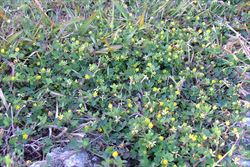
infestation (Photo: Sheldon Navie)

infestation (Photo: Sheldon Navie)
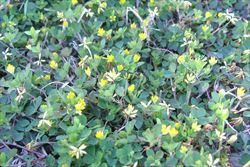
habit (Photo: Sheldon Navie)
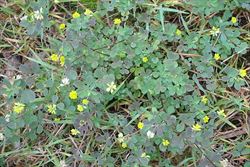
habit (Photo: Sheldon Navie)
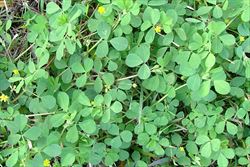
leaves (Photo: Sheldon Navie)
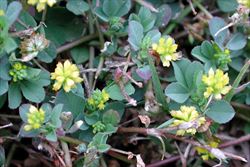
leaves and flower clusters (Photo: Sheldon Navie)

stem, old and young flower clusters, and leaves (Photo: Sheldon Navie)
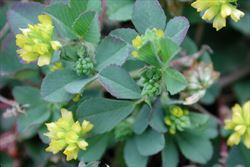
close-up of leaves, with three toothed leaflets, and flowers (Photo: Sheldon Navie)
Scientific Name
Trifolium dubium Sibth.
Family
Fabaceae (Queensland, the ACT, Victoria, Tasmania, and the Northern Territory)Fabaceae: sub-family Faboideae (New South Wales)Leguminosae (South Australia)Papilionaceae (Western Australia)
Common Names
cowhop clover, hop clover, Irish shamrock, least hop clover, lesser trefoil, lesser yellow trefoil, little hop clover, low hop clover, shamrock, shamrock clover, small hop clover, small hop-clover, suckling clover, yellow clover, yellow shamrock, yellow suckling clover
Origin
Native to north-western Africa (i.e. Morocco and Tunisia), Europe and western Asia.
Naturalised Distribution
Widely naturalised in southern and eastern Australia (i.e. in eastern Queensland, eastern and southern New South Wales, the ACT, Victoria, Tasmania, south-eastern and southern South Australia and south-western Western Australia). Also naturalised on Lord Howe Island and Norfolk Island.
Naturalised overseas, including in large parts of North America (i.e. Canada and the USA) and on some Pacific islands (e.g. Hawaii).
Notes
Suckling clover (Trifolium dubium) is regarded as an environmental weed in Western Australia and Victoria.

